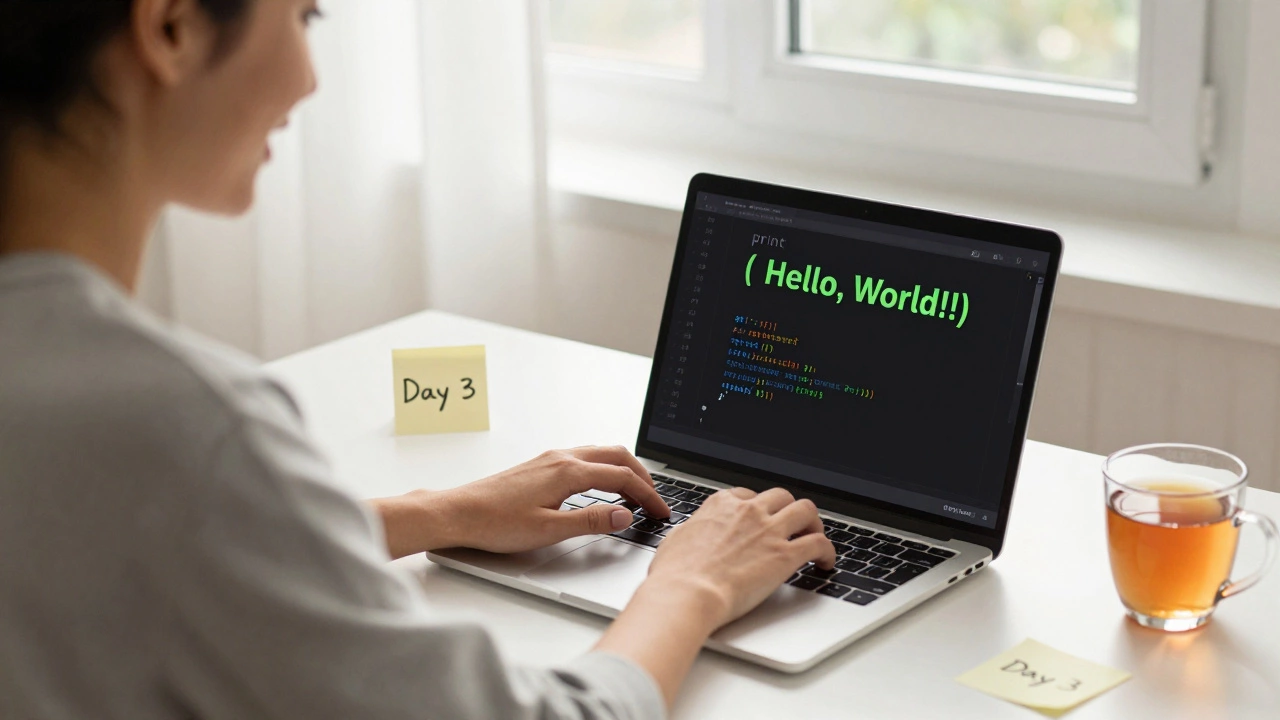Beginner Programming: Simple Steps to Start Coding
If you’ve ever thought about learning to code but felt stuck, you’re not alone. Most beginners worry about jargon, expensive courses, or how long it will take. The truth is, you can begin with just a laptop, a few free tools, and a clear plan. This guide pulls together the most useful advice from our top posts, so you can move from curiosity to real projects without the overwhelm.
Why Learning to Code Is Easier Than You Think
First, forget the myth that coding is only for math geniuses. Most languages use plain English‑like commands, and you can see results instantly, which means you learn by doing. Our article “Is Coding Hard to Learn? A Real Look at How Anyone Can Start Coding Today” shows that the biggest barrier is actually fear—not ability. Start with a language that has lots of tutorials, like Python or JavaScript, and you’ll find community support at every step.
Second, set tiny, achievable goals. Instead of aiming to build a full‑blown app, try writing a program that prints your name or adds two numbers. Each small win builds confidence and reveals patterns you’ll use later. When you notice progress, motivation spikes, and the learning curve flattens.
Top Free Resources to Start Coding
We’ve gathered the best free options that actually work. FreeCodeCamp offers interactive lessons on HTML, CSS, and JavaScript, and you earn certificates as you complete projects. Codecademy’s free tier lets you step through coding basics with instant feedback. If you prefer video, the CS50 series on YouTube breaks down core concepts in short, digestible clips.
For self‑paced reading, the guide “How to Teach Yourself Coding: Step‑by‑Step Guide for Beginners” lists essential books like “Automate the Boring Stuff with Python.” Those books focus on practical scripts you can use in daily life, which keeps the learning relevant.
Don’t overlook community forums. Sites like Stack Overflow and the r/learnprogramming subreddit let you ask specific questions and see how others solved similar problems. Even a quick search can save hours of frustration.
Finally, track your progress in a simple spreadsheet. Note the date, topic, and a brief summary of what you built. Seeing a column fill up week after week is a powerful motivator and helps you spot gaps to revisit.
By combining realistic goals, free resources, and a habit of documenting your journey, you’ll move from “I want to code” to “I can code.” Ready to type your first line? Open a text editor, copy the "Hello, World!" example from any tutorial, and run it. That single step is all it takes to join millions of beginners who turned curiosity into skill.
Best Coding Language for Beginners in 2026
Python is the best coding language for beginners in 2026 because it’s simple, powerful, and widely used. Learn how to start coding today with zero experience and build real projects fast.
Can You Learn Coding for Free? 2025 Roadmap, Best Free Courses, and FAQs
Yes, you can learn coding for free in 2025. Here’s a clear roadmap, the best free resources, a weekly plan, pitfalls to avoid, and quick answers to FAQs.

